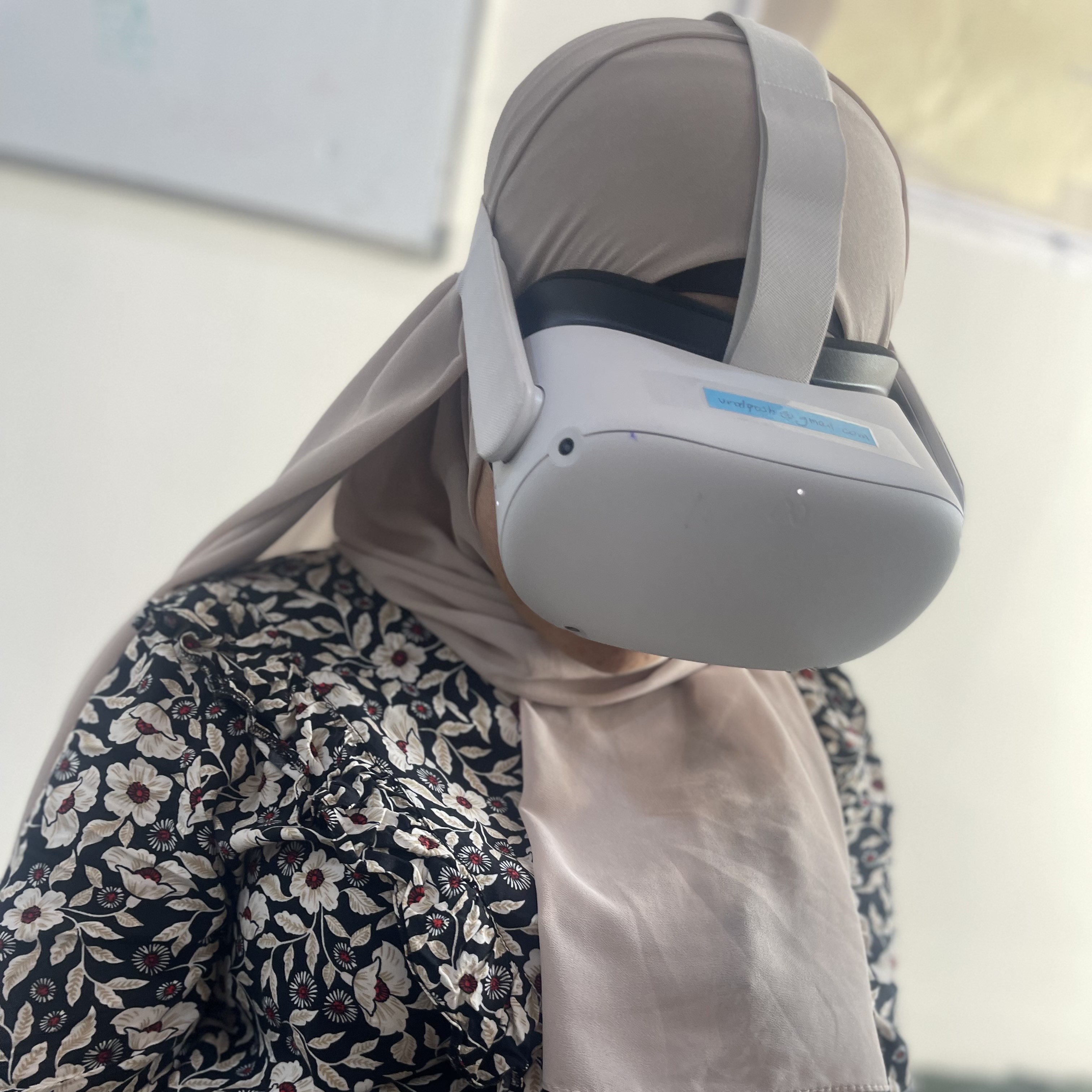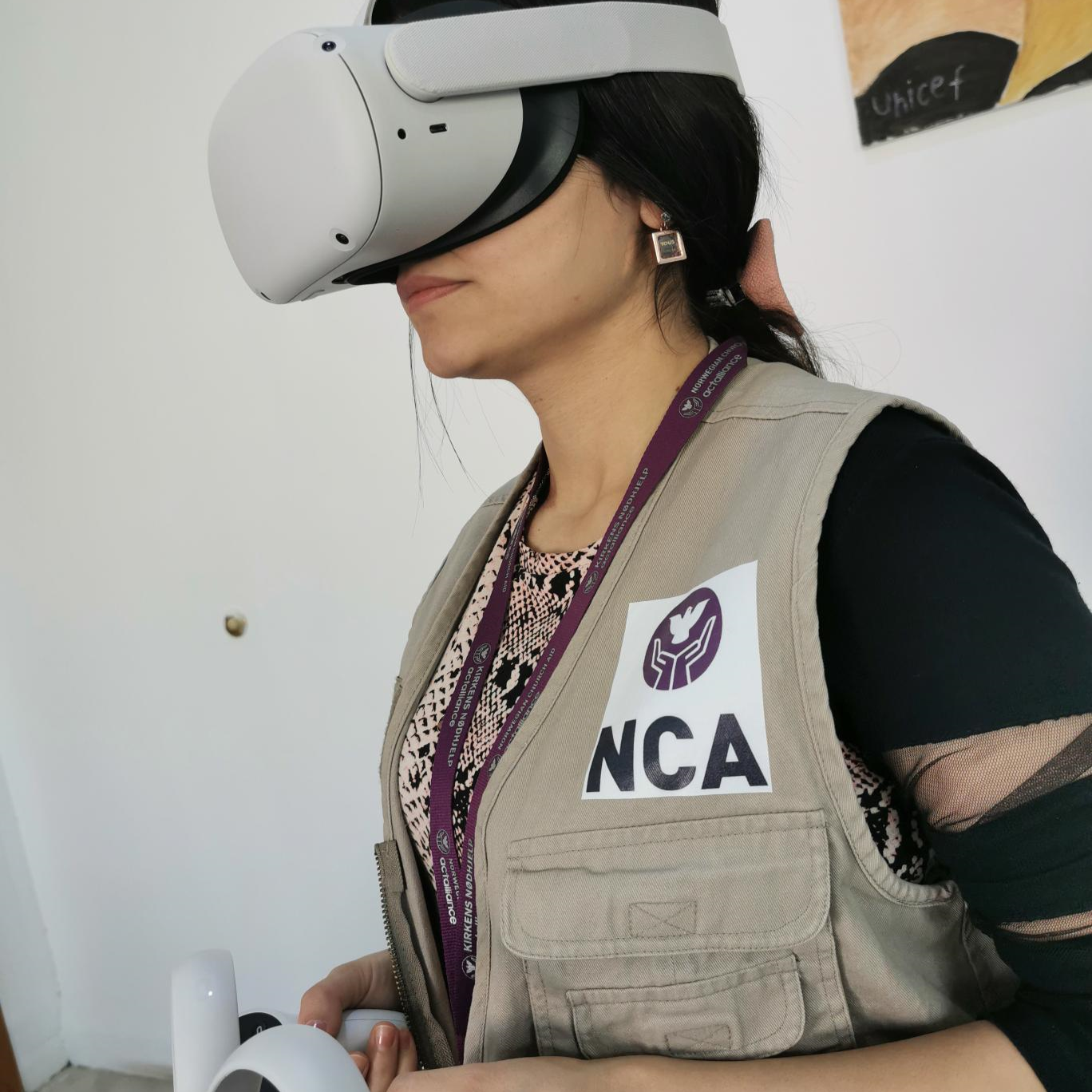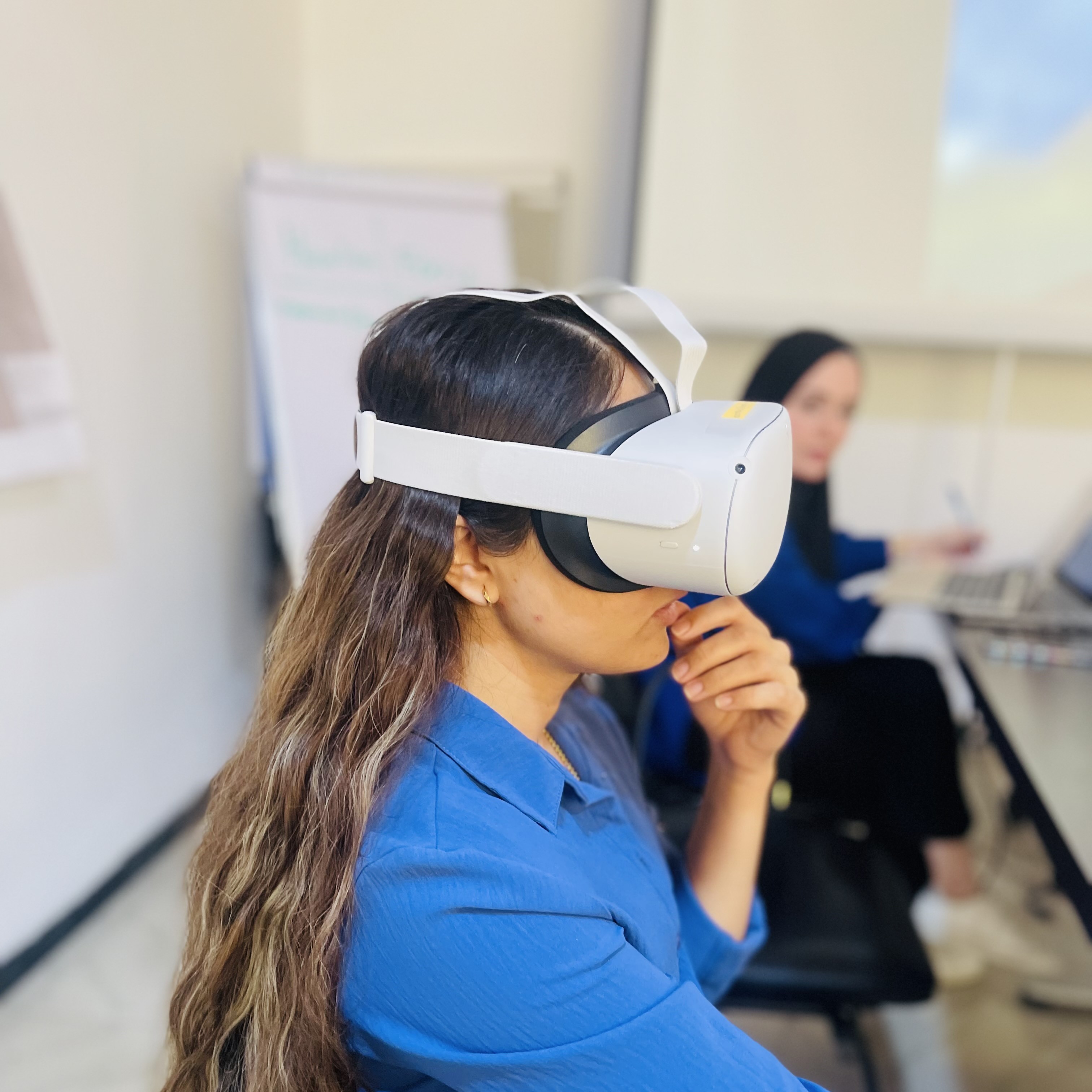Transforming MHPSS services
Therapeutic uses of VR have the potential to transform MHPSS service delivery worldwide. VR-assisted psychosocial interventions have shown promising results in addressing a range of mental health issues, including trauma, social phobias, depression and low self-compassion. VR is touted as a safe place to learn, fail, and practise new ways of being, free from judgment and stigma; however, VR’s application in humanitarian settings is limited, yet growing. NCA’s pilot project hopes to contribute learning to the humanitarian sector about safe and effective ways to use this technology.






